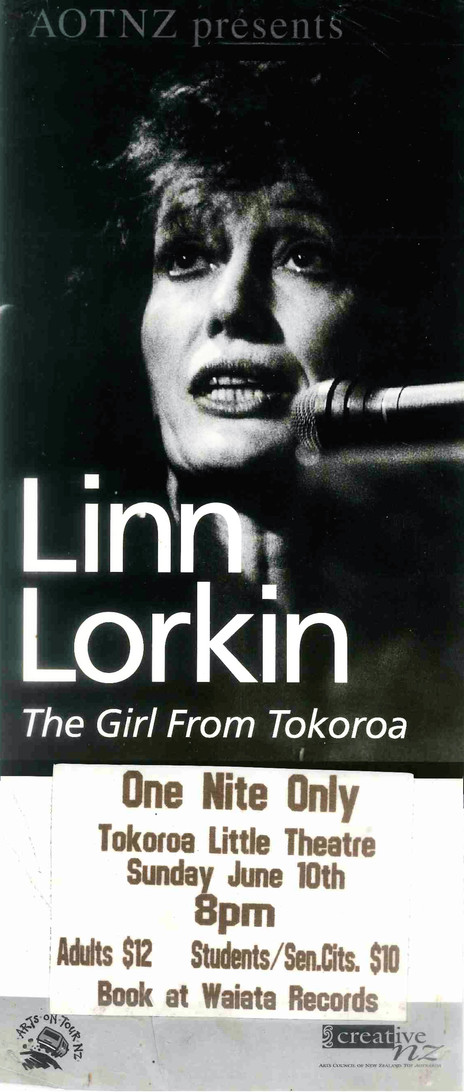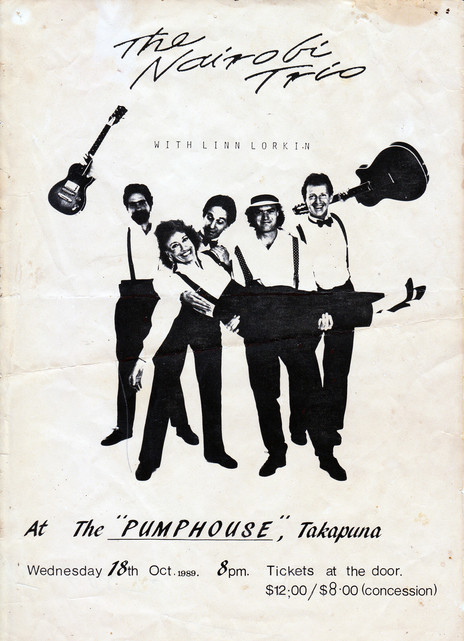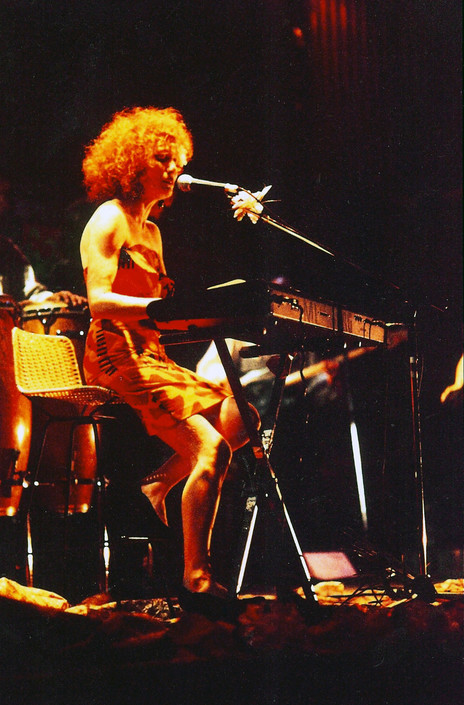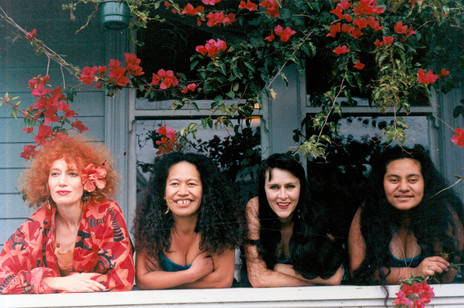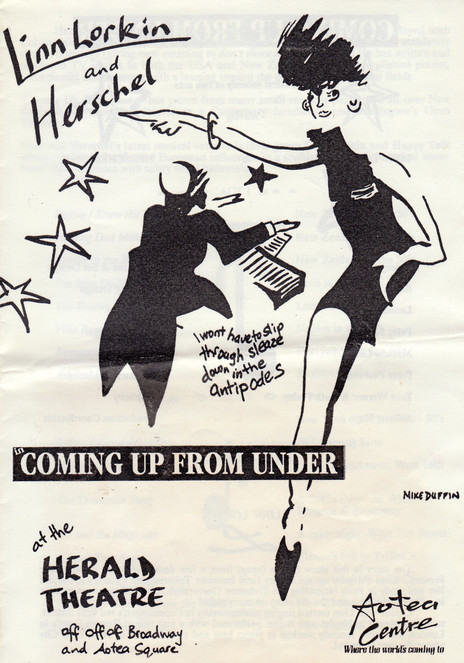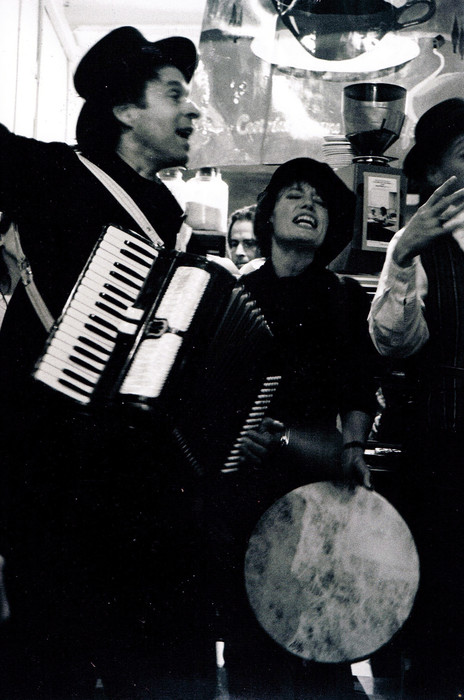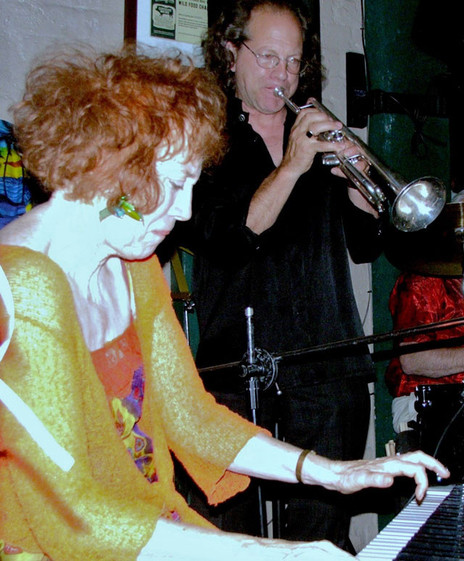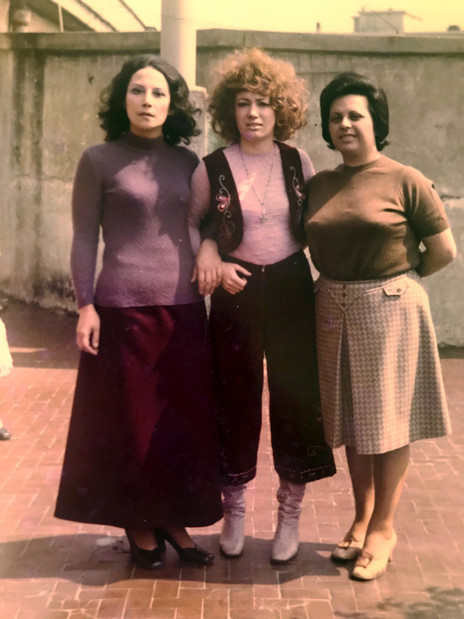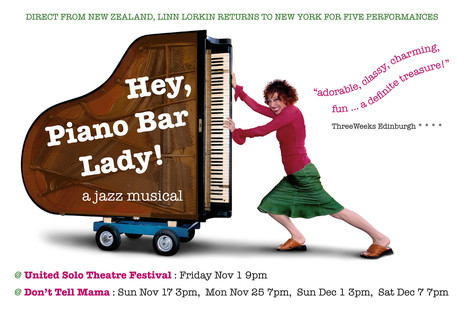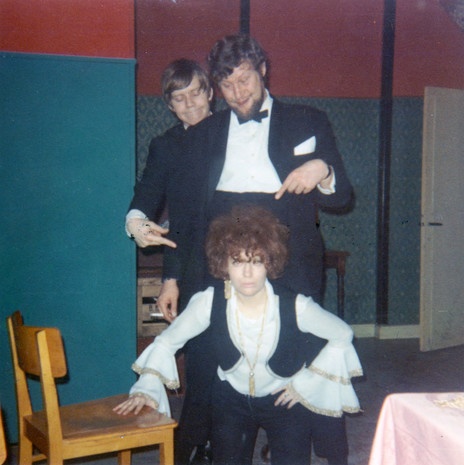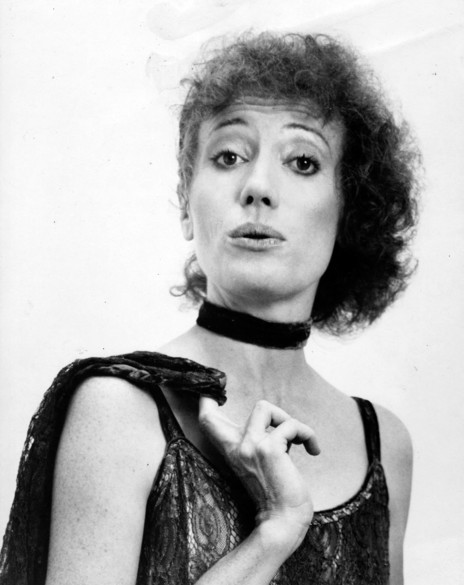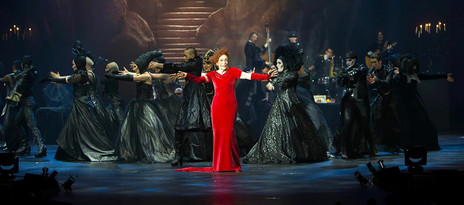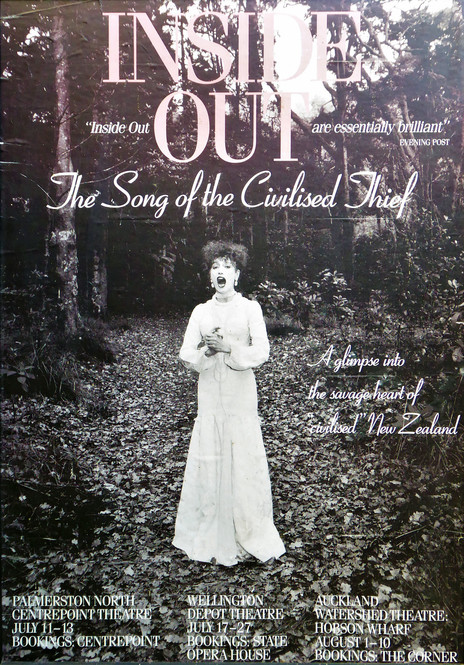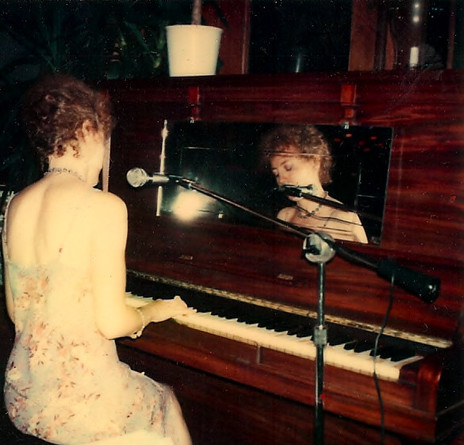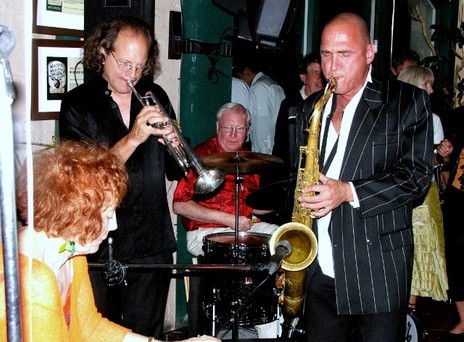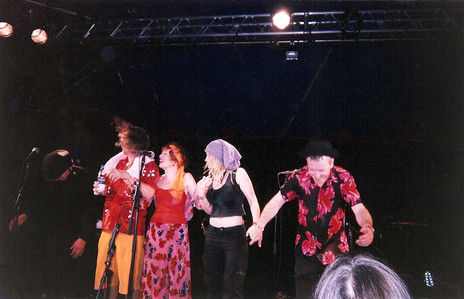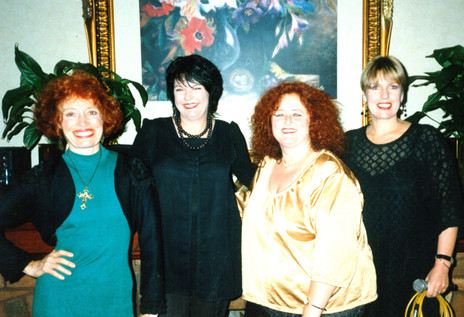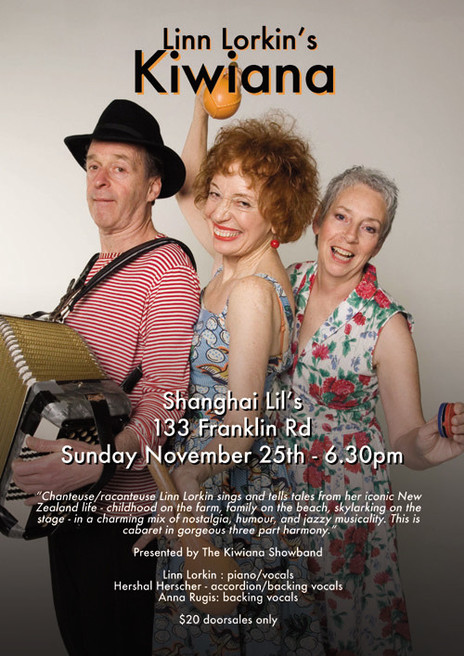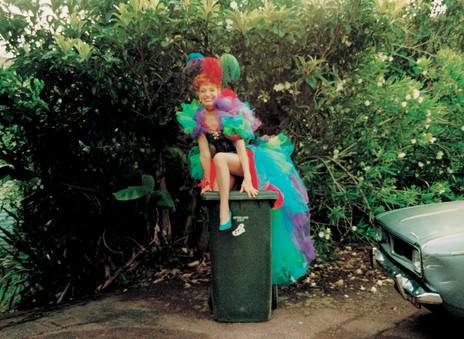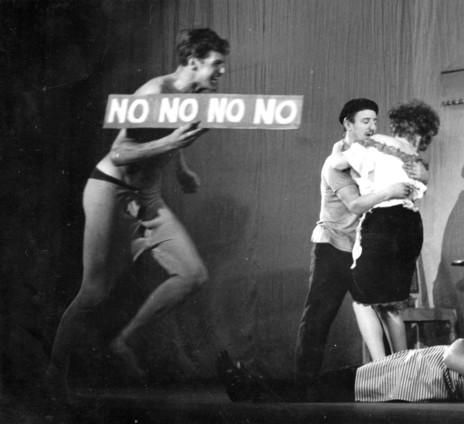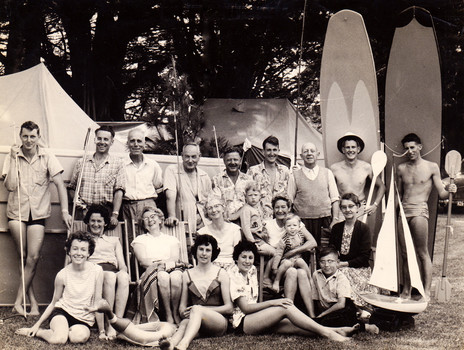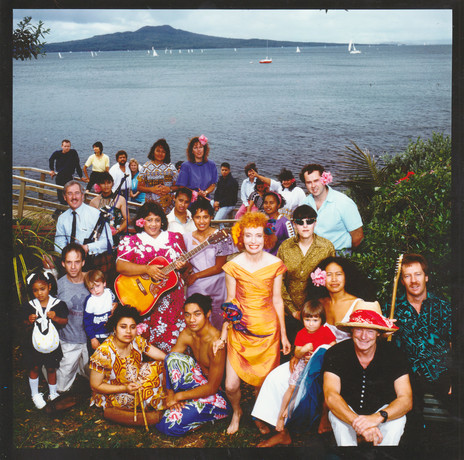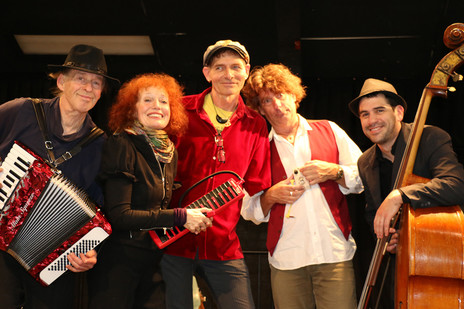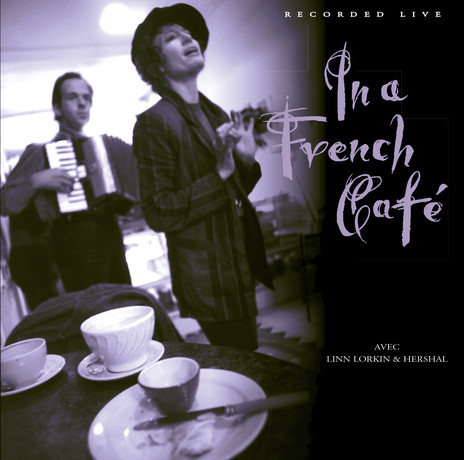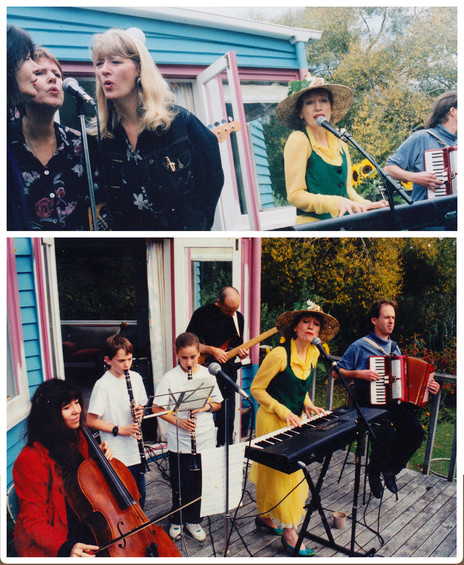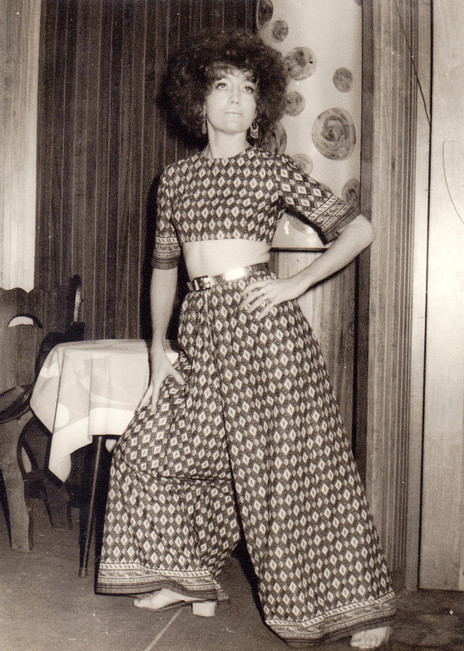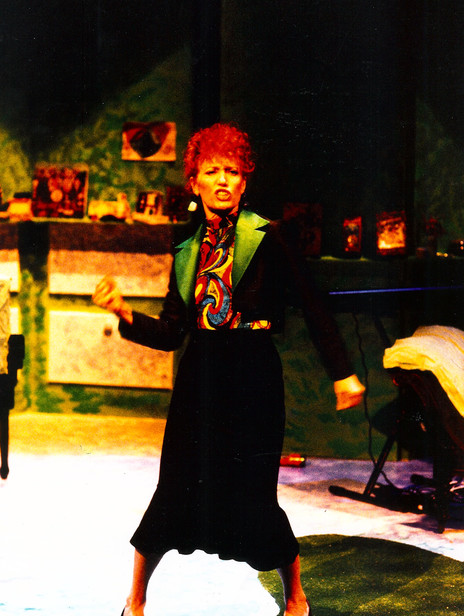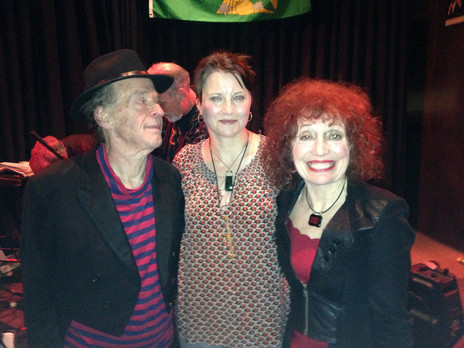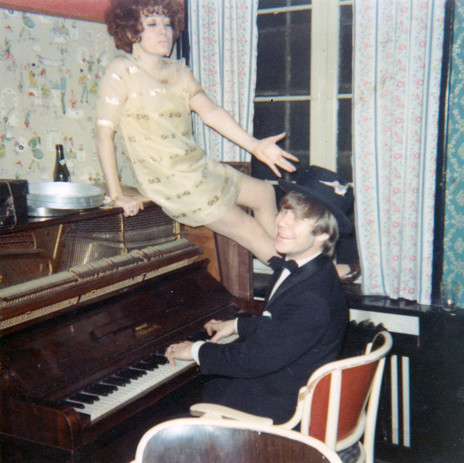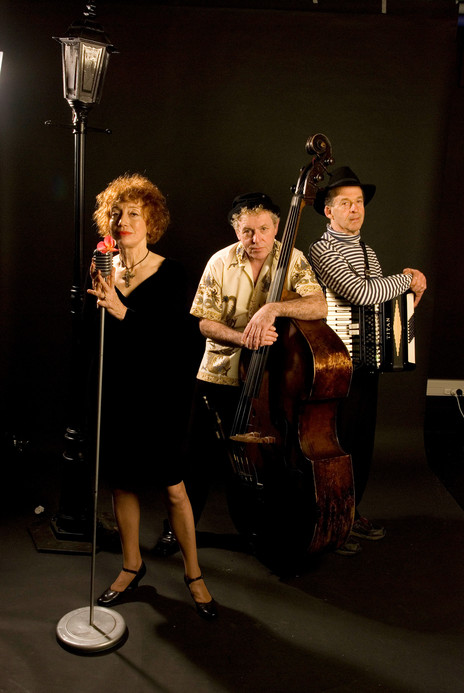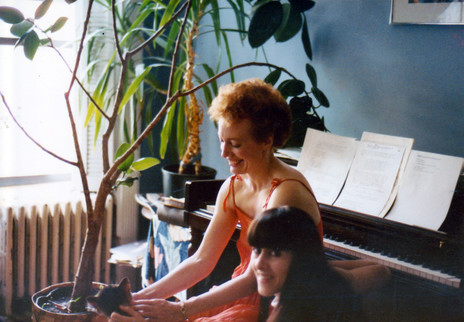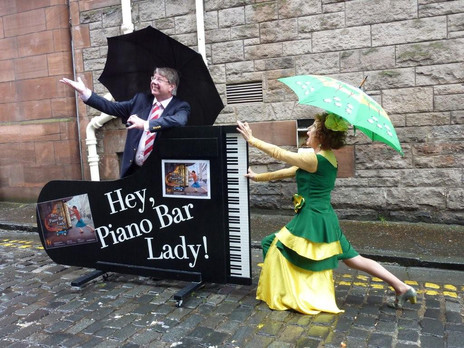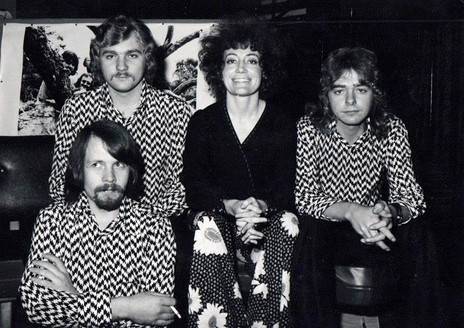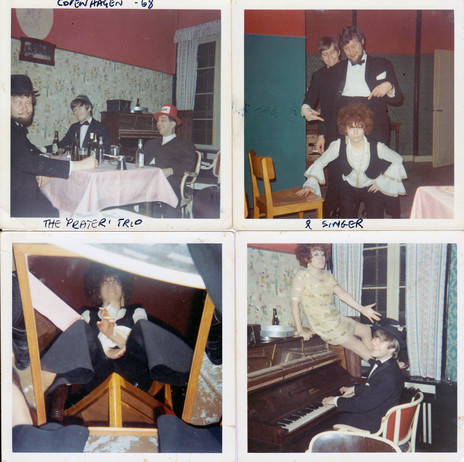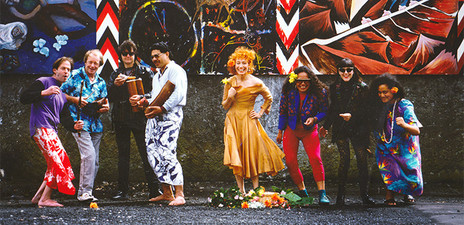“Lorkin suffers from the New Zealand disease: she is good at too many things,” wrote Arthur Baysting in Music in New Zealand in 1992. “Of her talents, songwriting is the most special. Few of her contemporaries can write about New Zealand things and succeed as well as she does … She leaps squarely into her own experience with such clarity and honesty that the listeners accept it totally.”
Born Lyn Williamson on a farm north of Tokoroa, she was six when a second-hand Broadwood upright arrived, bought by her father for £50. She took lessons from a farmer’s wife who had studied in London. “I was never good at practicing on it as a kid,” she told Baysting. “There were too many other things to do.”
Although Lorkin was shy, she played the piano for the school orchestra.
The family moved to Auckland when Lorkin was 13, and she attended Otahuhu College, with David Lange as a classmate. Near-contemporaries were Max Cryer and All Black flanker Waka Nathan, both of whom would feature years later in her songs.
Although Lorkin was shy, she was pianist for the school orchestra. She had loved playing outdoors on the farm and, at first, hated moving to the big city. “It was horrible to have houses next door, so close, nowhere to play,” she told Michael Colonna.
Lorkin loved musicals, but tickets to visiting shows were unaffordable so instead she wallowed in film versions of Broadway shows such as Guys and Dolls, Oklahoma, and Carousel. Pivotal early records were Stravinsky’s Rite of Spring and a Nina Simone album, which she related to because of the way Simone blended her classical training with a flair for jazz.
At Otahuhu College, Lorkin was dux and got a scholarship to attend the University of Auckland. Living at home and commuting by bus, her main social life came through performing in large-scale university revues such as Ban Hur at His Majesty’s. “I loved being in those revues, and I was good at them,” she told Colonna. Despite the demands of rehearsals, she graduated with an MA with first-class honours in French. This led to a French Government scholarship to Besançon University in France, but first she spent the 1964-65 year in London.
After a year at Besançon University she spent 1966 substitute teaching in London before taking up a New Zealand Government scholarship to the Sorbonne in Paris, her doctoral subject being ‘Euphemisms in the language of the French music-hall 1900-1914’. “But I got a bit fed up with trawling through old risqué Maurice Chevalier songs and, because I’d had that year in swinging London, Paris seemed not so exciting. So after six months I dropped out and went back to London, determined to become a singer.”
She scoured the situations vacant column in Melody Maker, wanting to be a jazz singer, fronting a band, but jobs were not forthcoming. “I auditioned for bands but it was hard because they wouldn’t take you unless you’d already had experience.” After one audition in an Islington pub the band-leader was keen to hire her, but Lorkin had brought some friends along for support. The landlady said she would never hire anyone “with friends who looked like that.”
Deciding to return to New Zealand, she got sidetracked visiting friends in Copenhagen. In a bar in the city’s seedy harbour area, Nyhavn, Danish friends from her student days in Paris got her up to sing with a soul band and she was hired, for tips only. In the breaks she went next door to perform songs with a jazz trio, playing for sailors and prostitutes, and was paid in white bread and coffee. Then the jazz trio scored a well-paid residency in a smart nightclub in a more salubrious neighbourhood and took her with them.
in Rome a local mafioso nicknamed her Carciofina – artichoke – because of her striking red hair.
When the work ran out, she headed for Italy, securing a regular gig playing and singing in an upscale piano bar off the Via Veneto in Rome, and at the popular El Sombrero piano bar in Naples for an audience of US Navy personnel who had enlisted to avoid Vietnam. The Naples club was owned by a local mafioso, who nicknamed her Carciofina – artichoke – because of her striking red hair, worn in an afro. “He’d say, ‘Carciofina sing me the song about the autumn [‘Autumn Leaves’]’. I’d sing that in French and he’d be weeping in the bar.”
One of the pianists in the piano-bar, a Neapolitan called Luciano, became her boyfriend. Unfortunately, the bar was frequented by an undercover policeman, and the couple was arrested on their way home one night, in possession of a small piece of hash, and accused of being dealers. Lorkin was placed in a women’s prison; in Italy, the accused are guilty until proved innocent.
Poggioreale prison, called Villa Poggi by the inmates, was run by an order of nuns called the Sisters of Pity. Many were very unattractive, even disfigured, and had been placed in the order by their families because it was unlikely they would ever marry. “The Mother Superior was a short person with a hare lip,” Lorkin told Baysting. “Others were hunchback or even worse. But they all tried their best to be compassionate guardians.”
The prisoners were even more exotic – some were prostitutes, others were inside for crimes of passion – and Lorkin made some close friends. She would eventually sing about them in a sequence of her show Coming Up from Under. Lorkin was in prison for six months awaiting her trial. With the help of an Italian lawyer (and her schoolmate David Lange back in Auckland), she was acquitted.
She returned to Auckland in 1971 where she played solo piano at The Crypt and became the singer with The Mike Harvey Trio at The Ranch House, a group which featured bassist Jim Hall. Lorkin bought a Fender Rhodes and became the first woman to play electric keyboards around Auckland, most notably in a funk/R&B band called Exit which featured Howie Morgan on bass, John McGuire on drums and a young gun guitarist newly arrived from Hastings: Tama Renata. From there, she and drummer McGuire joined the house band at Your Father’s Moustache playing with Tuhi Timoti, Bob Jackson and singer Mary Bradfield.
Of her time in Exit, Lorkin told Baysting, “We would play at Georgie’s club till 3am and those guys were hot. The material was Larry Graham, Stanley Clarke, Tower of Power kind of stuff with a lot of improvising. Sometimes, when everyone was ‘on’, the music was extraordinary. But playing sets with those guys was totally exhausting. At the end I’d come off the bandstand pale and shaking. My hands felt like they were falling off my arms. The rumour around town was that I was doing hard drugs.”
Comedian and jazz lover Spike Milligan heard her performing and took her demo tape to give to his mate Ronnie in London. The upshot was a gig at Ronnie Scott’s in 1976, playing with her own trio as the support act for Dexter Gordon. On her way to LA to look for work in the funk scene, Lorkin arrived in New York on a three-week transit visa – and stayed for eight years. She fell naturally into piano bar work, moving around Manhattan and honing her cocktail jazz skills.
While staying with New Zealand-born jazz pianist Mike Nock in his SoHo loft, he gave her some advice: in New York, she would need her own, original material. If she didn’t have any, get some. Lorkin had always dismissed the idea of writing songs. But late one night, alone in the loft while he was away in New Zealand – and heartbroken at the break-up of a romance – she sat down at Nock’s 70-year old Steinway grand and away she went.
In the space of a fortnight she wrote her first 12 songs, including one about Renata, ‘When Tama Plays’. Her later song ‘Ballad of the Late Bloomer’ reflects that life-changing moment at age 35.
She recalled to Baysting that one day, walking barefoot along the boardwalk at Atlantic City, she looked at the ocean and the sand. “Suddenly these first lines came to me – the words, the music, everything. It was about when I used to go camping at the beach as a child.” Back in New York, she wrote ‘Family at the Beach’.
Word got around amongst the expatriates in New York that, in a mid-town piano bar, there was a New Zealand woman singing jazz and songs about camping at the beach back home, and other such things. They started dropping in to hear her, as did New Zealand visitors. David Lange – in his political ascendency – would often stay in her apartment, sleeping on her sofa bed. She introduced him to expat New Zealand band The Drongos, who he championed back home. Lange was taken by her song ‘Villa Poggi’, about the Naples Jail. Sam Hunt was entranced by the rhyme of “pohutukawas” with “flowers” in ‘Family at the Beach’, which had become the New Zealand expat “hit”.
Sam Hunt was entranced by the rhyme of “pohutukawas” with “flowers” in ‘Family at the Beach’.
Lorkin returned to Auckland in 1985 in order to bring up her new-born son Joseph in New Zealand; soon afterwards she was followed by New York musician Hershal Herscher, Joseph’s father. Encouraged by RNZ producer Kevin Oliff, who had seen Lorkin perform in New York, she recorded her first (vinyl) album In The Land of Music that year in RNZ’s Broadcasting House studio in Wellington, with the NZSO and an Auckland rhythm section. “It put me on the map,” said Lorkin in 1992, “mainly due to ‘Family at the Beach’.”“New York was the perfect place for me to be at that time,” she told Colonna. “My last gig there was in an upmarket piano bar/bistro on Park Avenue called Réginette and owned by Régine, the famous disco queen. One night I got a $100 tip. Placido Domingo was a regular and often put $20 in the jar. Blossom Dearie discovered me and told me she loved my songwriting.”
In his 1992 profile of Lorkin in Music in New Zealand, Baysting said that already the song was a bit of a seagull on her back. “One senses a frustration in that sometimes it stops people from listening to her other material. She even wrote another beach song – ‘Family Picnic Samba’ – so that she could play it instead. It didn’t work – these days she gets requests for both.”
Baysting suggests that “trying to escape” the beach song may have led her to change her surname from Williamson to Lorkin (after her grandmother, Daisy Lorkin, who eloped with her piano teacher and, as a young widow with five children, played piano for silent films in Dunedin in the 1920s).
Over the next three decades, based in Grey Lynn, Lorkin and Hershal found creative and artistic fulfillment with the forming, and performing with, many bands, among them Happy Talk, French Toast, The First Ladies of Jazz, Orquesta Amadeus, the Nairobi Trio, and the long-running Jews Brothers Band. With the Jews Brothers they have toured four times to Europe as well as to Australia. They recorded 17 more albums for their own label Rouge Records.
From 1988 to 1994 Lorkin was a member of Inside Out Theatre (founded and directed by Mike Mizrahi and Marie Adams), and has further demonstrated her love of theatre in three autobiographical music theatre shows: Coming Up from Under, Chanson and Hey, Piano Bar Lady! She took Hey, Piano Bar Lady! to New York and Berlin clubs, and twice to Edinburgh Fringe (2011, 2012). In 2013 it won the Best Cabaret award in New York’s United Solo, the world’s largest solo show festival, and was reprised at Auckland Writers Festival in 2018 and at Artworks on Waiheke in 2020, with other seasons to come.
Lorkin’s diverse experiences are reflected in the variety of music she has performed: Broadway show tunes, French chanson (with Hershal on accordion), German cabaret, jazz and klezmer. Her talent as a linguist and her French studies have resulted in a large French repertoire and she also sings in Spanish, Italian and German and – in The Jews Brothers Band – Russian and Yiddish.
“A cultural treasure,” wrote William Dart in the NZ Listener in 2006, “she writes song with brilliantly tangled rhymes and dizzying musical twists.” Lorkin’s prolific songwriting has yielded over 100 songs and covers a spectrum of musical styles: from samba to Parisian waltz, rock ballads to music-hall, you-name-it. “However the song wants to write itself,” she says, “I just go with it.”“I’ve really put together my performing persona in New Zealand,” she told Colonna. “I probably wouldn’t have done it if I’d stayed in America. I’ve cracked that one now. Plus, my voice has got bigger and stronger, and more linked to my heart chakra, because I’ve done so much singing in that emotional French style, without a microphone.”
LORKIN IS “A CULTURAL TREASURE” – WILLIAM DART IN THE ‘NZ LISTENER’, 2006.
There are many of what she calls her “kiwiana” among her oeuvre. Well-known among these, apart from the two beach songs, are ‘Walking in a Green World’ (about being in native bush), ‘Helping Dad Milk the Cows’ (featuring an early country version of “streaking”), the bossa nova-ish ‘I’m from Tokoroa’, the poignant ‘Grey Lynn Song’ and the swinging ‘K Rd’.
Unlike most New Zealand songwriters she has ranged far away from songs about love and relationships and many of her songs have a large injection of humour. She has of course written many songs set in New York, like ‘Me and the Magician’, but there are other locations too: swinging London in the 60s (‘The Beatles’ New Album’), the Scottish Highlands (‘Ancient Pipes’), the Island of Jersey in straitened circumstances (‘Give Us a Job’). There are protest songs too, such as ‘Mururoa’ in French and English, and the anti-nuclear ‘End of the World’. Over the last few years, she has been putting together a Linn Lorkin songbook.
Lorkin was a recipient of a Variety Artists’ Club New Zealand Scroll of Honour in 2014. She still performs with French Toast and The Jews Brothers Band and her own recently formed K Road Quartet and has written a memoir called The Redhead Gets the Gig, yet to be published.
“Everything I do was learned on the job,” Lorkin said in 2019. “There was no show-biz in New Zealand when I was growing up, no performance arts schools, no jazz courses. Luckily there was the tradition of kids being taught classical piano or violin, so I got the piano that way. I’ve tended to go where the wind blew me but I’m pleased to say I got there in the end!”
On 5 June 2023, June Lynette Williamson (Linn Lorkin) became a Member of the New Zealand Order of Merit, for services to music.
